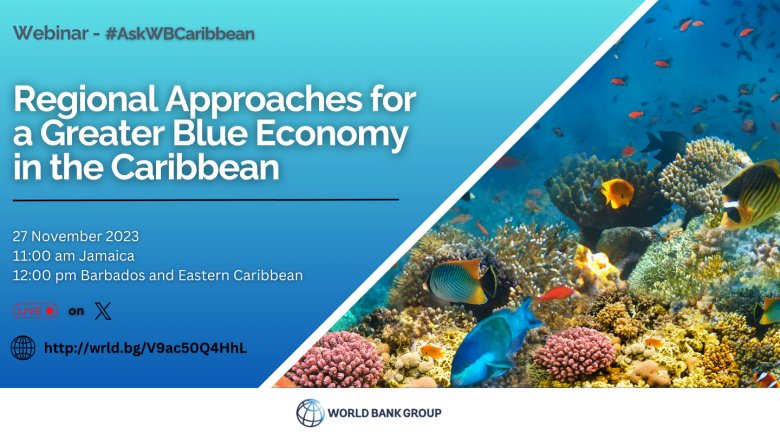Potential growth of the blue economy is possible in several areas; especially fisheries, aquaculture, mariculture, coastal tourism, marine biotechnology, and ocean energy. With technical knowledge of marine ecosystems, legal certainty, and security to attract private investment, the Caribbean can see improvements in food security, nutrition and health, Livelihoods, mitigation of climate change, homes and shelter, Sustainable economic growth, and trade.
In the near future, a more systematic approach based on a better understanding of nationally defined priorities, social context, and resource base, can guide sustainable and inclusive blue growth. Investing in improved governance will create a pipeline of investable opportunities to grow the blue economy in a way that benefits national economies and local communities, while protecting resources for future growth. Effective governance is an essential condition to promote sustainable management of aquatic resources and environment, and ensure biodiversity and ecosystem resilience, which in turn contribute to building community resilience against various shocks, including climate change.
The use of science, data and technology is critical to underpin governance reforms and shape management decisions. Without credible information on the state of the resource in a given fishery, and how quickly a population can be expected to grow and recover, it is impossible to design effective and defensible fisheries conservation and management measures. Similarly, for aquaculture to be sustainable, its environmental impacts must be measured, understood, and limited. Without data, it is impossible to discern the impact of any management changes. This basic knowledge about the status and potential for recovery of a fishery or the sustainable expansion of aquaculture is essential for decision-making and to facilitate private investment.
More importantly, this natural resource, if well managed, has the potential to make a much greater contribution to poverty reduction and shared prosperity for the region’s growing population of 19 million, increasing their resilience to climate change as well. Countries across the Eastern Caribbean have been affected by a series of adverse events, including the erosion of trade preferences, the decline in official foreign assistance, turbulence in the business cycles of countries with high tourism revenues and foreign direct investments, and recurrent natural disasters.
Format: Virtual/ Zoom and X (formerly Twitter) Live.
